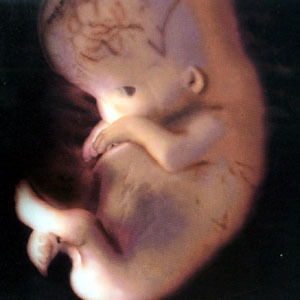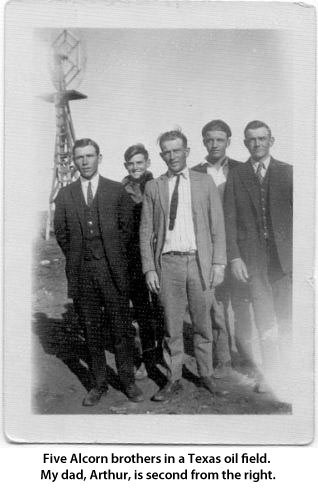Randy Alcorn's Blog, page 208
September 17, 2012
Negativism and Doctrinal Drift among Some in World Missions
 George Verwer, a man I dearly love and respect, and one of the great global missions leaders in church history as well as a champion for the unborn, has rewritten and updated a chapter from his book Out of the Comfort Zone. Here’s a portion from that chapter. Listen to our brother George, who has earned like few others the right to be heard in world missions. Especially pay close attention to his final two paragraphs about doctrinal drift:
George Verwer, a man I dearly love and respect, and one of the great global missions leaders in church history as well as a champion for the unborn, has rewritten and updated a chapter from his book Out of the Comfort Zone. Here’s a portion from that chapter. Listen to our brother George, who has earned like few others the right to be heard in world missions. Especially pay close attention to his final two paragraphs about doctrinal drift:
Another vital key area where things get very messy is in the whole area of finance and sending funds to mission fields for people and projects. With horror stories we can “prove” anything we want, so people tell horror stories of the misuse of funds on the field and it scares people from sending any money at all. A hot word is the word “dependence” and some very extreme books and articles have been written about this. I believe this brings a lot of confusion. I am convinced that history will show that generosity and taking the risk of supporting a project (like a school) even thousands of miles away, has been a major positive factor in taking the Gospel forward and establishing His church. I wish I had the time and gifting to write a book about it.
Some people will not support a new school if they do not see how it can be self-supporting right away. This is a huge mistake especially in places like India where they have had that teaching for years and so therefore there are very few good schools for the extreme poor (generally Dalits or Tribal People) whereas there are thousands of schools among those who can pay (I am not saying that’s wrong). In the complex situation of extreme poverty we must expect to put a lot of money in before it can sustain itself. In the case of schools it may be a couple of decades before it can change, when people who graduate from these schools have jobs. Can people even imagine what we are up against in India with almost 300 million locked into the extreme poverty of untouchability. These special situations, and there are many around the world, need hyper-special generosity. Throwing up the dependency scare tactics can be one of the great hindrances. Even with some things going wrong and we get a mess, I believe history will show that God was doing way more in the midst of the mess than we realized at the time.
In all of this we need to have more wisdom and common sense and avoid what I call destructive idealism. If this idealism combines with the kind of perfectionist streak that many of us have, it causes a lot of discouragement, disunity and confusion and often much more. That is why there are so many books setting forward someone’s teaching or agenda which gives an inaccurate picture of other people, churches and organizations and what they are doing. A little more wisdom, patience and humility would go a long way in taking us into greater reality and victory.
A controversy is going on among mission and church leaders more than I have known in my lifetime. There is a large group of people who want to be considered biblical and evangelical and yet who seem to, in a very subtle way, deny the very basics of the faith like the lostness of all who are outside of Christ and the substitutionary death of Christ.
I find that many books are so critical of the church and of the present evangelical global movement, which now involves hundreds of millions of people in almost every nation of the world. It seems like they are saying that Hudson Taylor, John Stott, Billy Graham, Oswald J Smith, William Carey, Dr. Francis Schaeffer, Charles Spurgeon, DL Moody, Elizabeth Elliot, William Booth, John Wesley, Amy Carmichael and hundreds of others who have helped this movement become what it is today had it all wrong. They might not say that, but that’s what their writing clearly infers. Their books that have become so popular have many good things to say, but again and again they move from truth to error, leaving the readers in doubt and confusion. The natural result is often criticism of their own church or denomination. They of course cause many to leave their church and start new churches often based more on reaction than on biblical truth. For me it’s leading to a higher level of ‘messiology’ than ever. In the midst of it I believe we need more wisdom, love and discernment than ever. We need the reality of pressing on ‘with our eyes on Jesus’ in the midst of the difficulties and challenges.

September 14, 2012
Questions for Our Pro-Abortion Friends, Church Leaders, and Politicians
Kevin DeYoung is a sharp young pastor and writer who I greatly appreciate. This blog is worth reading and contemplating.
Questions for Our Pro-Abortion Friends, Church Leaders, and Politicians
by Kevin DeYoung
What shall we call the unborn in the womb?
If the entity is a living thing, is it not a life? If your person began as a single cell, how can that fertilized egg be something other than a human being? Isn't it more accurate to say you were an embryo than that you simply came from one?
So when does a human being have a right to life?
Shall we say size matters? Is the unborn child too small to deserve our protection? Are big people more valuable than little people? Are men more human than woman? Do offensive linemen have more rights than jockeys? Is the life in the womb of no account because you can't hold him in our arms, or put him in your hands, or only see her on a screen?
Shall we make intellectual development and mental capacity the measure of our worth? Are three year-old children less valuable than thirteen year-olds? Is the unborn child less than fully human because he cannot speak or count or be self-aware? Does the cooing infant in the crib have to smile or shake your hand or recite the alphabet before she deserves another day? If an expression of basic mental acuity is necessary to be a full-fledged member of the human community, what shall we do with the comatose, the very old, or the fifty year-old mom with Alzheimer's? And what about all of us who sleep?
Shall we deny the unborn child's right to life because of where he lives? Can environment give us value or take it away? Are we worth less inside than outside? Can we be justly killed when we swim under water? Does where we are determine who we are? Does the eight inch journey down the birth canal make us human? Does this change of scenery turn "its" into persons? Is love a condition of location?
Shall we reserve human dignity only for those humans who are not dependent on others? Do we deserve to live only when we can live on our own? Is the four-month old fetus less than human because she needs her mom for life? Is the four-month old infant less than human when she still needs her mom for life? What if you depend on dialysis or insulin or a breathing apparatus? Is value a product of fully-functioning vitality? Is independence a prerequisite for human identity? Are we worth only what we can think, accomplish, and do on our own?
If the unborn life is human life, what can justify snuffing it out? Would it be right to take the life of your child on his first birthday because he came to you through sad and tragic circumstances? Would you push an 18 month old into traffic because she makes our life difficult? Does a three year-old deserve to die because we think we deserve a choice?
What do you deserve now? What are your rights as a human person? Did you have those same rights five years ago? What about before you could drive? Or when you used training wheels? Were you less than fully human when you played in the sandbox? When you wore a bib? When you nursed at your mother's breast? When your dad cut your cord? When you tumbled in that watery mess and kicked against that funny wall? When your heart pounded on the monitor for the first time? When you grew your first fingernails? When you grew your first cells?
What shall we call the child in the womb? A fetus? A mystery? A mistake? A wedge issue? What if science and Scripture and commonsense would have us call it a person? What if the unborn child, the messy infant, the wobbly toddler, the rambunctious teenager, the college freshman, the blushing bride, the first-time mother, the working woman, the proud grammy, and the demented old friend differ not in kind but only in degree? Where in the progression does our humanity begin and end? Where does life become valuable? When are we worth something? When do human rights become our rights? What if Dr. Seuss was right and a person's a person no matter how small?
Why celebrate the right to kill what you once were? Why deny the rights of the little one who is what you are?

September 12, 2012
What do you think about linking current events to the end times?
What do you think about linking current events to the end times? Is this a good thing for Christians to focus on?
 I certainly believe in the return of Christ. But I do not put much faith in prophecy buffs, who have been getting it wrong for so many years. What international conflict in the past century, especially involving the Middle East, has not inspired books and sermons affirming “this is it”? (Lenin, Mussolini, Hitler, Stalin, JFK, and Henry Kissinger are just a few of the “Anti-Christs” who have come and gone.)
I certainly believe in the return of Christ. But I do not put much faith in prophecy buffs, who have been getting it wrong for so many years. What international conflict in the past century, especially involving the Middle East, has not inspired books and sermons affirming “this is it”? (Lenin, Mussolini, Hitler, Stalin, JFK, and Henry Kissinger are just a few of the “Anti-Christs” who have come and gone.)
Eventually some of the prophecy “experts” will be right about some things. Will it be this time, and will recent events trigger the real end times? It’s possible, of course. But I’ve heard dozens of theories about “men who must be the Anti-Christ”, as well as countless “the sky is falling” and “this is the beginning of the tribulation for sure” predictions, during the forty years since I became a Christian as a teenager. You will pardon me if I don’t have much interest in the latest theories.
What exactly is going to be the outcome of today’s current events in the Middle East and around the world? We simply don’t know. That takes us right back to the Word of God, where we need to be in the first place: “Now listen, you who say, ‘Today or tomorrow we will go to this or that city, spend a year there, carry on business and make money.’ Why, you do not even know what will happen tomorrow. What is your life? You are a mist that appears for a little while and then vanishes. Instead, you ought to say, ‘If it is the Lord’s will, we will live and do this or that.’ As it is, you boast and brag. All such boasting is evil” (James 4:13-16).
This puts us in our place. We’re not God, we don’t hold the universe in the palm of our hands and we just don’t know what lies ahead of us. I don’t know if I’ll be killed in a car wreck tomorrow or if a loved one will be diagnosed with terminal cancer. I’m not in charge—neither are you.
 God is in charge, and He is not taken by surprise. He knew about today’s events before He created the world. He can and will use it as part of His plan, which may or may not include judging society and disciplining his church. Rather than speculate on what will happen, we should focus on what the Bible has told us all along—fear God, trust God, be wise, be prepared, be faithful, be generous, care for your family, look after the body of Christ, reach out to those who don’t know Him. We don't know the day or the hour of His return, and need to focus on faithfully serving our King until we die or He returns, either of which could happen any day.
God is in charge, and He is not taken by surprise. He knew about today’s events before He created the world. He can and will use it as part of His plan, which may or may not include judging society and disciplining his church. Rather than speculate on what will happen, we should focus on what the Bible has told us all along—fear God, trust God, be wise, be prepared, be faithful, be generous, care for your family, look after the body of Christ, reach out to those who don’t know Him. We don't know the day or the hour of His return, and need to focus on faithfully serving our King until we die or He returns, either of which could happen any day.
Scripture tells us, “God has not given us a spirit of fear, but of power and of love and of a sound mind” (2 Timothy 1:7). We should respond to current events not with a spirit of fear, but of power (knowing God has given us in Christ all the resources we need to face any difficulty), love (putting the glory of God and the good of others before ourselves), and a sound mind (a disciplined, self-controlled and Spirit-controlled intellect that evaluates the available information and acts in light of biblical priorities and wisdom).
If we seek first the kingdom of God and his righteousness, we need not worry about tomorrow (Matthew 6:24-34). The best way to prepare for tomorrow is to walk with God today.

September 10, 2012
Get Ready for Christians Going to Jail
 Twenty-three years ago when I was going to jail for civil disobedience, a pastor told me he believed Christians shouldn’t go to jail. I told him I thought the day would come when he would go to jail, not for refusing to go along with abortion, but for refusing to go along with homosexuality. I said the courts would demand that his church not discriminate against homosexuals when hiring teachers for their church school. And eventually they would tell him he must not speak against homosexuality from the pulpit, because that would be hate speech. That seemed far-fetched to many at the time. To show how far we've come since then, read John Piper’s blog posted in July:
Twenty-three years ago when I was going to jail for civil disobedience, a pastor told me he believed Christians shouldn’t go to jail. I told him I thought the day would come when he would go to jail, not for refusing to go along with abortion, but for refusing to go along with homosexuality. I said the courts would demand that his church not discriminate against homosexuals when hiring teachers for their church school. And eventually they would tell him he must not speak against homosexuality from the pulpit, because that would be hate speech. That seemed far-fetched to many at the time. To show how far we've come since then, read John Piper’s blog posted in July:
Some Foreseen Effects of Legalizing So-Called Same Sex Marriage
When I preached on the implications of the legalizing of so-called same sex marriage I said, “Pretending that [marriage] can exist between people of the same sex will send ripple effects of dysfunction and destruction in every direction, most of which are now unforeseen.”
Here is an example you may not have foreseen. There are hundreds of others on the way.
It has been reported that in the case of Elane Photography v. Willock (NM Ct. App., May 31, 2012) a New Mexico state appeals court held that a photography firm's refusal to provide its services to photograph a same-sex commitment ceremony violates the New Mexico Human Rights Act's prohibition on discrimination in public accommodations on the basis of sexual orientation.
According to the court:
Elane Photography’s owners are Christians who believe that marriage is a sacred union of one man and one woman. They also believe that photography is an artistically expressive form of communication and photographing a same-sex commitment ceremony would disobey God and the teachings of the Bible by communicating a message contrary to their religious and personal beliefs.
Rejecting Elane Photography's free expression arguments, the court held:
The mere fact that a business provides a good or service with a recognized expressive element does not allow the business to engage in discriminatory practices… While Elane Photography does exercise some degree of control over the photographs it is hired to take… this control does not transform the photographs into a message from Elane Photography.
This is why on a recent panel discussion of pastors at a TGC meeting there was general consensus that if so-called same sex marriage is legalized, there will be a lot of conscientious, loving Christians going to jail.

September 7, 2012
How You View a Parachute Makes All the Difference in Whether You’re Grateful for It
Ray Comfort tells a memorable story that illustrates the difference between trusting Christ to make this life more pleasant, and trusting Him to deliver us from Hell so that we can enjoy Heaven with him forever:
Consider the following scenario.
Two men are seated in a plane. The first is given a parachute and told to put it on because it will improve his flight. He is a little skeptical at first; he cannot see how wearing a parachute on board a plane could possibly improve his flight.
After some time, he decides to experiment and see if the claims are true. As he straps the apparatus to his back, he notices the weight of it on his shoulders and he finds he now has difficulty sitting upright. However, he consoles himself with the flight attendant’s promise that the parachute will improve his flight, and he decides to give it a little time.
As the flight progresses, he notices that some of the other passengers are laughing at him because he is wearing a parachute inside the plane. He begins to feel somewhat humiliated. As they continue to laugh and point at him, he can stand it no longer. He sinks in his seat, unstraps the parachute, and throws it to the floor. Disillusionment and bitterness fills his heart because as far as he is concerned, he was told an outright lie.
The second man is also given a parachute, but listen to what he is told. He is told to put it on because at any moment he will have to jump out of the plane at 25,000 feet. He gratefully puts the parachute on. He does not notice the weight of it upon his shoulders, nor is he concerned that he cannot sit upright. His mind is consumed with the thought of what would happen to him if he jumped without the parachute.
Let’s now analyze the motive and the result of each passenger’s experience. The first man’s motive for putting on the parachute was solely to improve his flight. The result of his experience was that he was humiliated by the other passengers, disillusioned, and somewhat embittered against those who gave him the parachute. As far as he is concerned, it will be a long time before anyone gets one of those things on his back again.
The second man put on the parachute solely to survive the jump to come. And because of his knowledge of what would happen to him if he jumped without it, he has a deep-rooted joy and peace in his heart, knowing that he has been saved from certain death. This knowledge gives him the ability to withstand the mockery of the other passengers. His attitude toward those who gave him the parachute is one of heartfelt gratitude.
...Instead of preaching that Jesus will “improve the flight,” we should be warning sinners that one day they will have to jump out of the plane. “It is appointed for men to die once, but after this the judgment” (Hebrews 9:27).
Ray Comfort, God Has A Wonderful Plan for Your Life: The Myth of the Modern Message (Bellflower, CA: Living Waters Publications, 2010), 69-71.

September 5, 2012
Pat Robertson does it again, this time attacking adoption
 Last year I expressed my opposition to Pat Robertson’s horrific statements about encouraging a man to divorce his wife with Alzheimer’s so he could have a meaningful relationship with another woman. I followed up with a second blog after receiving notes from many people saying it was inappropriate for me to “judge” Pat Robertson.
Last year I expressed my opposition to Pat Robertson’s horrific statements about encouraging a man to divorce his wife with Alzheimer’s so he could have a meaningful relationship with another woman. I followed up with a second blog after receiving notes from many people saying it was inappropriate for me to “judge” Pat Robertson.
A few weeks ago Pat Robertson did it again...a “family values” advocate undermining biblical family values. At first I thought I wasn’t going to comment. But it continues to bother me that a supposed spokesperson for the Christian faith continues to make remarks that are so contrary to the gospel of Christ. And it troubles me that many of his followers continue to defend him. This time it’s on the subject of adoption:
Russell Moore expresses my take on this, and since I couldn’t have said it better, I refer you to his article. I especially agree with the connection between Pat Robertson’s skewed perspectives and his prosperity theology. In a health and wealth gospel worldview, God’s children aren’t supposed to have to put up with things like the suffering involved in caring for a mentally disabled spouse, or children who may prove very difficult to raise. In a biblical worldview, God calls us to take up our cross daily and serve Him and others by willing sacrifice, for God’s glory and the good of others.
Yes, I realize Pat Robertson followed up with a statement to the effect that “it didn’t come out the way I intended.” But at some point we have to recognize that Jesus said “out of the abundance of the heart the mouth speaks” (Matthew 12:34). In other words, it’s not as simple as saying “I didn’t mean it that way” when you continue to say things that dishonor our Lord.
When you are a pastor or a teacher with a large sphere of influence, you need to recognize you will be held to a higher standard: “Not many of you should become teachers, my brothers, for you know that we who teach will be judged with greater strictness” (James 3:1). I believe that as a writer and speaker, I will be held to a higher standard, and given his much larger sphere of influence, Pat Robertson will be all the more.
 If there are those out there, and sadly I believe there are many, who are still looking to Pat Robertson as a spokesman for evangelical Christianity, please realize that his words have undermined his credibility. I hope this will be seen as a demonstration of the ugliness and cruelty of the health and wealth gospel and where it takes people. For those who will say again that I am judging Pat Robertson, let me point out that he is publically making these unbiblical statements and misleading many. If he was quietly thinking such things or saying them privately, that would be wrong, but not so hurtful and misleading.
If there are those out there, and sadly I believe there are many, who are still looking to Pat Robertson as a spokesman for evangelical Christianity, please realize that his words have undermined his credibility. I hope this will be seen as a demonstration of the ugliness and cruelty of the health and wealth gospel and where it takes people. For those who will say again that I am judging Pat Robertson, let me point out that he is publically making these unbiblical statements and misleading many. If he was quietly thinking such things or saying them privately, that would be wrong, but not so hurtful and misleading.
This is about whether adopted children from other cultures and of other races should be considered just as legitimate as children born into one’s own family. Should God’s people remain silent when the weak and needy are being marginalized rather than defended?
Speak up for those who cannot speak for themselves,
for the rights of all who are destitute.
Speak up and judge fairly;
defend the rights of the poor and needy.
(Proverbs 31:8-9, ESV)

September 3, 2012
Universalism: Will Everyone Go to Heaven?
One of our EPM staff members is Julia Stager. Julia, age 24, is currently a student at Western Seminary, and has made a great contribution to EPM. I find her to be an insightful student of God’s Word. I asked Julia to address the subject of universalism. Here are her thoughtful perspectives and the Scriptures she bases them on.
—Randy
Universalism: the belief that everyone will eventually go to Heaven.
The logic behind it goes something like this:
God loves everyone and desires all to be saved.
Nothing can suppress the love or will of God.
Therefore all will be saved.
A common verse cited in support of Universalism is 2 Corinthians 5:19, “that is, in Christ God was reconciling the world to himself, not counting their trespasses against them, and entrusting to us the message of reconciliation.” Other verses cited by Universalists are: Ezekiel 33:11, 1 Timothy 2:3-4, 2 Peter 3:9, Romans 11:32, and 1 John 4:8.
 If these were the only verses in the Bible referring to the inclusion and/or exclusion of souls in the after-life, the Universalist’s argument could be persuasive. But that is not the case. In Matthew 25:46 Jesus says, “And these will go away into eternal punishment, but the righteous into eternal life.” Other verses refuting Universalism are: Matthew 7:13-14, 8:12, 10:28, 13:40-42, 18:8, Mark 3:28-29, 9:43–48, 2 Thessalonians 1:9, and Jude 7.
If these were the only verses in the Bible referring to the inclusion and/or exclusion of souls in the after-life, the Universalist’s argument could be persuasive. But that is not the case. In Matthew 25:46 Jesus says, “And these will go away into eternal punishment, but the righteous into eternal life.” Other verses refuting Universalism are: Matthew 7:13-14, 8:12, 10:28, 13:40-42, 18:8, Mark 3:28-29, 9:43–48, 2 Thessalonians 1:9, and Jude 7.
The Bible taken as a whole presents a much stronger case against Universalism than for it.
A partial truth is no truth at all. Universalism promotes its partial truths at the expense of the complete biblical truth. Christ himself refutes Universalism every time he speaks of Hell, and he spoke about it more than anyone in Scripture. Since Christ clearly taught that not everyone will go to Heaven, and that some will go to Hell, it is logically inconsistent to claim to follow Christ and also be a Universalist.
Personally, I don’t like believing anyone will suffer in Hell for eternity. But because I take God at his Word, and trust that God is good whether or not I understand how everything fits together, I must not try to improve on what Christ said. To not believe in an eternal Hell is to deny the truth God has revealed to us through his Word. It betrays a personal lack of faith in him as the Good and Sovereign Creator. We think of Hell as unfair, when in actuality God is far more fair than any of us. He is infinitely gracious while being infinitely just. Since we now can only see dimly and in part (1 Corinthians 13:12) we are in no position to displace the Bible with our own understanding of what fairness demands. Who are we to try to hold God to our own fallen standards?
One thing that has helped me understand the eternality of Hell is this: people in Hell will most likely continue sinning against God – thereby eternally sealing their destiny. It’s not that a finite being gains infinite punishment for a finite sin, but that repeated sins (i.e. rejecting God over and over, continuing in pride, etc.) lead to ever-ongoing punishment. D.A. Carson articulates this concept well in his book How Long, O Lord?, which Randy quotes from in his book If God is Good.
One danger of Universalism is that it diminishes the gravity and necessity of spreading the gospel and striving for holiness in this life. (Legalism and dogmatism can hinder the spread of truth and the Christian life as well, but that’s not what we’re addressing here.) Sharing the power of the gospel with nonbelievers is something clearly commanded in the Bible (Jude 23). If I believe that eventually everyone will be saved, I will neither comprehend nor regard the importance of exhorting the saved or unsaved in the way of truth.
The Scriptures do say God is love, but our understanding of love is easily perverted. It’s popular today to tolerate and accept various heresies that claim to be true love. Love is exalted (rightly) while holiness is glossed over (wrongly). Ignoring the problem of sin and its consequences in the name of “love” does not actually solve anything. Theological discussions are frowned upon as divisive. People resist a faith they have to defend because, after all, who could argue against love? Why should we debate doctrine when we could just love each other instead? Doesn’t God win when love wins?
Yes, he does – just differently than how the Universalists think of it. God wins when truth wins. God is love and truth. Love does not and cannot exist apart from truth. By truth and love we are to encourage each other in the way of righteousness (Hebrews 10:24), save people as out of the fire (Jude 12-13), warn them against apostasy that leads to death (Hebrews 6:4-6), explain the consequences of not obeying the gospel (2 Thessalonians 1:8), and speak the truth in love (Ephesians 4:15).
 I must recognize that I did not create the world and therefore have no authority to criticize the Creator’s actions but should thank him for his infinite blessings to those who believe (Ephesians 3:14-19). After all, what authority does the clay have over the Potter (Jeremiah 18)?
I must recognize that I did not create the world and therefore have no authority to criticize the Creator’s actions but should thank him for his infinite blessings to those who believe (Ephesians 3:14-19). After all, what authority does the clay have over the Potter (Jeremiah 18)?
A lot of life is about trusting God. Growing in our relationship with the Lord will continually bring us into greater understanding of how good he is and how he alone is perfect, holy, and glorious. True wisdom and true knowledge are founded in the fear of the Lord (Proverbs 9:10).
May we fear God and trust him, and believe rather than deny his love and truth as revealed in His Word!
Julia Stager
EPM Research and Communications Assistant
August 31, 2012
Conception to Birth, Visualized
 A mathematician discusses and illustrates the extraordinary process of how a human being is conceived and develops. Fascinating. And God gets the credit for the "magic”, the miracle of life.
A mathematician discusses and illustrates the extraordinary process of how a human being is conceived and develops. Fascinating. And God gets the credit for the "magic”, the miracle of life.

August 29, 2012
Scottish or Irish?
 I am Scotch-Irish (or some prefer Scottish-Irish), descending back to three Alcorn brothers who lived in Belfast long ago. There are indications the three brothers came from Scotland.
I am Scotch-Irish (or some prefer Scottish-Irish), descending back to three Alcorn brothers who lived in Belfast long ago. There are indications the three brothers came from Scotland.
When I was a kid my dad told me my ancestors came from Ireland, but never mentioned they were Scottish, so I grew up believing I was Irish. When I was thirty or so I found out from my cousin James Alcorn, the family historian, that I was really Scottish. I looked at my dad and said, “You told me we were Irish.” Dad shrugged and said, unfazed, “Guess not.” Every Saint Patrick’s Day since then, and every Irish Spring commercial, I say to Nanci, “I used to be Irish.”
Some get confused between the Scottish and the Irish. Here is a quick and entertaining clarification.

Seminar at The Cove: "Four Central Truths of a Biblical Worldview"
 This October 2-4, I’ll be speaking at The Cove, Billy Graham’s mountain retreat center in Asheville, NC. The seminar is titled "Four Central Truths of a Biblical Worldview." We’ll be covering the topics of Heaven, evil and suffering, stewardship as God's money managers, and living a life of grace and truth. Learn more at www.thecove.org/Alcorn. If (and only if) it’s what God has for you, I hope to see you there!
This October 2-4, I’ll be speaking at The Cove, Billy Graham’s mountain retreat center in Asheville, NC. The seminar is titled "Four Central Truths of a Biblical Worldview." We’ll be covering the topics of Heaven, evil and suffering, stewardship as God's money managers, and living a life of grace and truth. Learn more at www.thecove.org/Alcorn. If (and only if) it’s what God has for you, I hope to see you there!
August 27, 2012
The Least of These: Street Children
 Today we’re launching a new blog series (every few weeks we’ll share a post) that addresses social justice issues that affect the most vulnerable people in the world today. Each blog will focus on a specific, often overlooked, people group in need both physically and spiritually. Also, at the end of each post, there will be further information and ways for you to get involved and make a difference. (My thanks to EPM staff Julia Stager, Kathy Norquist, and Stephanie Anderson for assisting me with these.)
Today we’re launching a new blog series (every few weeks we’ll share a post) that addresses social justice issues that affect the most vulnerable people in the world today. Each blog will focus on a specific, often overlooked, people group in need both physically and spiritually. Also, at the end of each post, there will be further information and ways for you to get involved and make a difference. (My thanks to EPM staff Julia Stager, Kathy Norquist, and Stephanie Anderson for assisting me with these.)
This first blog focuses on child poverty in urban areas. Though many groups through the centuries have reached out to suffering children, the breadth and depth of poverty is only increasing. In the past, children who lived in or near cities were usually better off than poor children in rural areas, but that dynamic has dramatically shifted. Today, children (many of whom have at least one deceased parent) are living on the streets and in slums. This puts them in serious danger of malnutrition, exposure, disease, violence, sexual abuse, human trafficking, and child labor. (Unicef’s 2012 “State of the World's Children” report provides more statistics and information.)
Watch this insightful 1.5 minute video about children in crisis from ACTION International, a ministry that has been laboring for decades to reach street children for Jesus:
I’m also sharing a blog from Covenant Ministries, one of several ministries that supports street children. It’s a poignant account of the Lord’s provision and a little boy’s path to a better life.
Reclaiming the Innocence and Opportunity of Childhood
by Covenant Mercies
Many large African cities are faced with the challenge of street children. When families are decimated children lose hope for their future, and they often end up on the street begging and stealing. The streets of Addis Ababa, Ethiopia are replete with examples of this tragic loss of childhood’s innocence and opportunity.
Most children living on the streets have relatives nearby who might be minimally capable of putting a roof over their heads. However, antisocial behaviors learned on the streets aren’t easily broken, and this can make the task of reconnecting children with their families quite challenging. Such was the case with a young boy in our program named Bereket. After years of fending for himself on the street Bereket was befriended by Tesfaye Melaku, our Program Coordinator in Addis Ababa (whom we introduced in last year’s Sponsorship Program Update.) Tesfaye was quickly able to find a relative willing to take Bereket in, so we assigned him a sponsor and started supporting him in the context of his extended family.
However, things didn’t go well at first. Instead of going to school, Bereket returned to his friends on the street. He stole from his family and soon wore out his welcome. With no other relatives willing to take him in, Bereket was back on the street again. But Tesfaye continued visiting him regularly. He found a family in our program who agreed to include Bereket in their meals, then set out prayerfully to find him another home.
In time, Tesfaye found a guardian in our program who was willing to give Bereket another chance. The grandmother of a young girl named Meskerem agreed to take him in, as long as he would receive the same nutritional, medical, and educational support her granddaughter was receiving. This represented a wonderful opportunity for Bereket. He now had a chance to claim a different kind of life; far from the area of town where he might be tempted to rejoin his old friends on the street.
As of this writing, Bereket has lived for almost a year in his new home. He has adjusted well to family life, and developed a genuine love for his guardian and young foster sister. He has made friends in his new neighborhood, including some older boys (also sponsored in our program) who have been a positive influence on him.
Bereket has made a good educational adjustment as well, despite the fact that Tesfaye needed to convince the school administration to accept a 13 year-old who had never attended school. Bereket’s academic aptitude appears to be strong, and he finished his first year ranked near the middle of his class. He is in Grade Two this year, and we are looking for ways to provide extra tutoring to help him catch up with other students his age.
Bereket is learning that we serve a God of second chances. In one way or another, this is the story of every child in our program. We pray that all our children will make the most of this opportunity for a second chance at childhood, and we are grateful for each and every sponsor whose generosity is making it possible.
How Can You Get Involved?
Pray
Set aside a time and place to pray specifically for children living on the streets and in slums. Medical Teams International has listed these helpful seven ways to pray for the poor:
1. Ask God to provide food, shelter, water, and health to those without income or resources.
2. Ask God to touch your own heart, making you sensitive to the needs of the poor.
3. Pray that churches serving those affected by poverty will be able to provide spiritual comfort and physical help to people in their communities.
4. Pray that God will touch the hearts of political leaders to make decisions in the best interests of the poor.
5. Pray that God will protect those who are poor from abuse and exploitation by others who have greater power or resources.
 6. Ask God to call His people to demonstrate His love for the poor—both in our own communities and around the world.
6. Ask God to call His people to demonstrate His love for the poor—both in our own communities and around the world.
7. Pray that God will help the poor gain the understanding and power needed to improve their own circumstances.
Raise Awareness
Share this blog, or others that address children in crisis, with your friends!
Support an Organization
Every Christian must ask, “What am I doing to feed the hungry and help the least of these? What am I doing to secure justice for the poor? What am I doing to uphold the cause of needy children?” Sentiment is not enough. Why not determine a salary to live on, then give back to God every dime he entrusts to us beyond that, so every day we work and earn income is a day that will help the poor and reach the lost.
“Whatever you did for one of the least of these brothers of mine, you did for me. . . . Whatever you did not do for one of the least of these, you did not do for me.”
—Jesus Christ (Matthew 25:40, 45)
Below are some organizations EPM recommends that reach out to children living in poverty.
A Future and a Hope/Kenya (home for orphaned girls)
www.afutureandahope.net
Compassion International
www.compassion.com
Covenant Mercies
www.covenantmercies.org
Dalit Freedom Network
(partnering with Operation Mobilization in India)
www.dalitnetwork.org
Home of Love Orphanage/Uganda
Action International Ministries
www.actionintl.org
Kasana Children's Centre
www.newhopeuganda.com/programs/kasana-childrens-center
Make Way Partners Sponsorship-Sudan
www.makewaypartners.org/child-sponsor-main.php
Shaohannah's Hope (engages churches in reducing barriers to adoption)
www.shaohannahshope.org
May God one day say of us what he said of King Josiah: “He defended the cause of the poor and needy, and so all went well. Is that not what it means to know me?” (Jeremiah 22:16)







